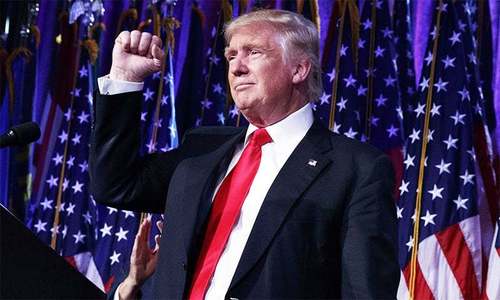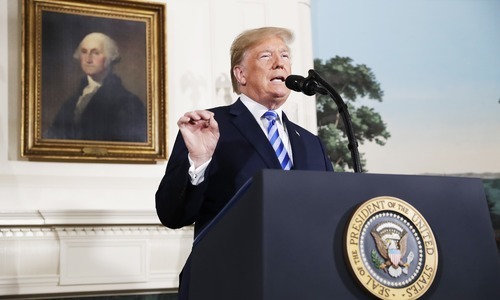The Turkish economy minister on Friday said the United States' withdrawal from the Iran nuclear deal was an “opportunity” for Turkey, insisting there would be no let-up in trade with Tehran.
Despite strong protests and last-minute lobbying by his European partners, US President Donald Trump announced that Washington would withdraw from the historic nuclear accord.
Trump then vowed that there would be fresh sanctions issued against Iran.
“I see it like this, this is an opportunity for Turkey,” Nihat Zeybekci told state news agency Anadolu, adding: “I will continue to trade with Iran.”
But he said that if there are United Nations decisions related to Iran's nuclear activities and other issues, “of course” trade would continue “complying with them”.
Turkish President Recep Tayyip Erdogan spoke on the phone with his Russian counterpart Vladimir Putin during which both men agreed the US move was a mistake.
Read: Anger, dismay, support — how the world sees US withdrawal from Iran deal
Zeybekci criticised the unilateral decision by Washington but added: “I don't see anything big to worry about at this stage,” noting that other countries including EU members were not of the same opinion as the US.
Relations between Turkey and the US have been strained over several issues including the conviction in January of a Turkish banker who helped Iran evade US sanctions.
Mehmet Haka Atilla was convicted after well-connected Turkish-Iranian businessman Reza Zarrab, arrested in the US in 2016, became a government witness and admitted involvement in a multi-billion-dollar gold-for-oil scheme to subvert US economic sanctions against Iran.
During Zarrab's testimony late last year, the businessman, who was once close to the ruling party elite, implicated Erdogan and other officials in the scheme.
In a deal negotiated between Iran and the five permanent members of the UN Security Council — the UK, China, France, Russia and the US — plus Germany, Iran agreed in 2015 to freeze its nuclear programme in exchange for the lifting of international sanctions.
Turkey and Iran together with Russia have been working closely on the Syrian peace process despite being on opposing sides of the seven-year conflict.
Erdogan on Thursday held a telephone call with Iranian President Hassan Rouhani during which the Turkish leader reiterated Turkey's commitment to JCPOA (the formal abbreviation for the accord).
The men also touched upon developing bilateral economic relations, a Turkish presidential source said.














































